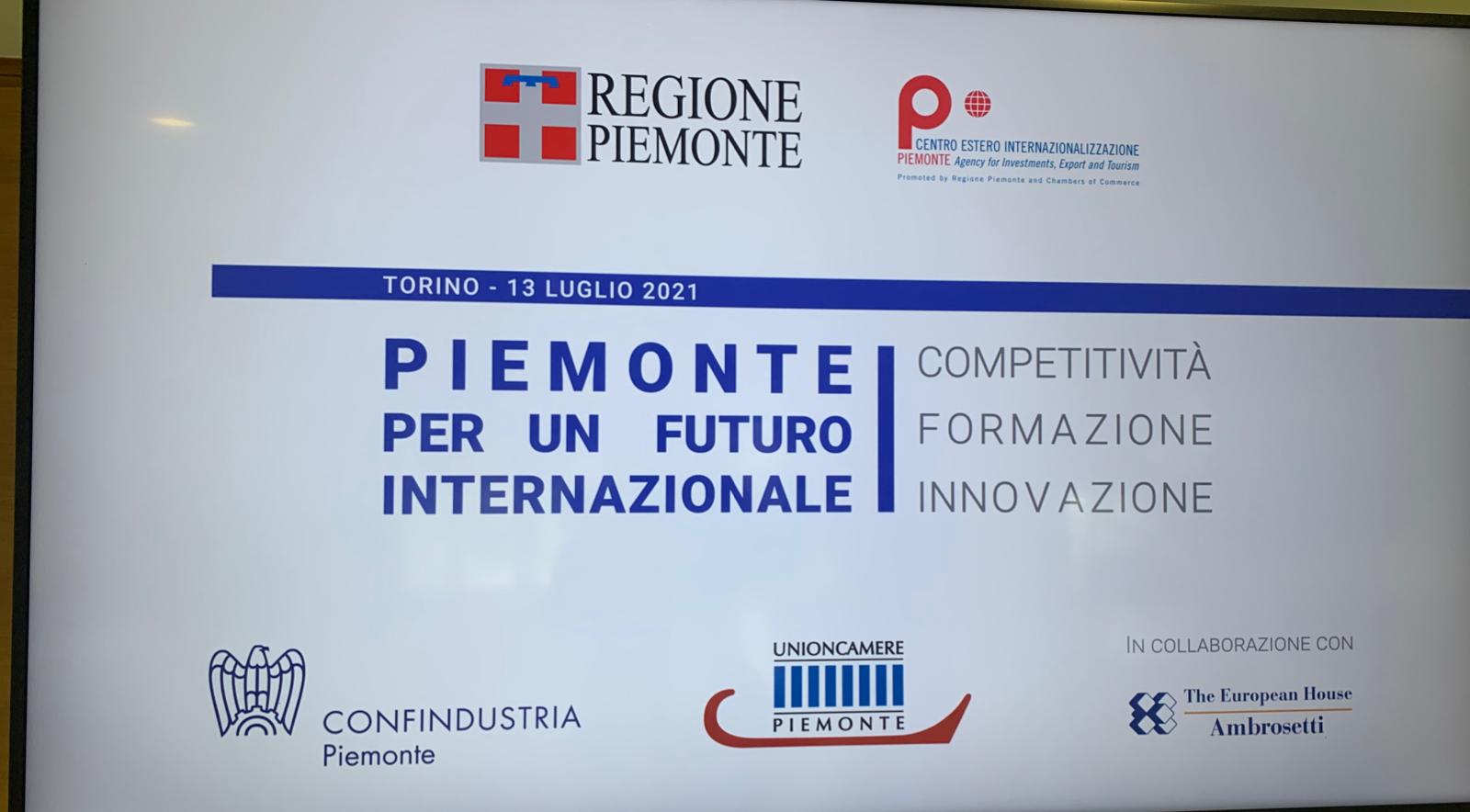When companies become protagonists in the dialogue with institutions and trade associations, the future takes shape, it feeds on itself: competitiveness, training and innovation are the three working tables promoted by the Piedmontese Foreign Trade Centre for Internationalisation in the Meeting “Piedmont for an international future”, whose title already outlines the path and delineates the boundaries: every single territory, including Piedmont, can no longer ignore the global vision and relations, but at the same time the world economy lives thanks to the micro and macro networks established in the individual production areas. And of all the possible networks, the most effective is the one in which politics listens to the associations, the associations listen to the companies, and the companies listen to the market. A transmission belt that is as intuitive and virtuous as it is yet to be structured.
The part that falls to companies is clear; on the other hand, the sustainability criteria are just as clear: the economic and ethical responsibility of a company comes together in listening to and supporting the critical issues and needs of what lives around it (environment, society, market, planet).
General Manager Fulvio Boscolo spoke at the competitiveness table, representing LMA’s founding principles: “the sustainability report”, he commented, “not only makes us better at competing, but is also a governance factor that is advantageous in the medium and long term: investments imbued with this matrix return new sources of reinvestment and improve the collective conditions of the economy”.
—–
THE DEBATE AND CONCLUSIONS
Governments require companies to produce a sustainability report that guarantees sound and responsible criteria. Similarly, politicians, and intermediate bodies such as trade associations, must take on the burden of both guaranteeing tools that are accessible to all, not just large companies, and of promoting (and then promptly conveying and disseminating) actions and places that support corporate productivity.
The great savings that can be made from sustainability policies very quickly become new reinvestments that help companies to expand, improve and become even more competitive on the market. Not to mention the great advantages of environmental and social impacts.
Another decisive point is the ability to create synergies and networking between the various industries: pooling one’s own specific features means enhancing the entire market, again a subjective advantage that becomes a collective advantage and, above all, a long-range one. Synergistic networking must not only be developed between companies, but also between different social sectors (companies, corporations, associations, politics, academia, various institutions, etc.), always with the same objective: individual skills for collective benefit. And every initiative of each must be immediately and organically shared with the various stakeholders, because even timely and widespread communication determines the success of a network, the effectiveness of a structure, the efficiency of a process. With this cultural matrix, and let us emphasise the cultural aspect of the network process in markets and the economy, the 90% of SMEs, the PA bureaucracy, the political and institutional choices would all find, and at the same time, new strength, new sap, new perspective (this is ‘innovation’).
A structured bureaucracy that is easily accessible to 90% of SMEs (and not only to large companies) is an operational necessity, but first of all it is a cultural approach, for which training and openness to the territory are necessary. All this is already synonymous with Innovation: it is an investment to make companies, their services to customers, and the world better.
It is a company strategy, which starts from a responsible and aware Governance, aimed at knowing its own reference market in depth, also knowing how to anticipate the needs and maybe even the moves of others: in this sense competitiveness is already innovation. Just as competitiveness is not only about products, but also about listening and sharing.
Nobody has the truth in their pocket: the humility of listening to others thus becomes a fundamental skill for businesses, certainly not without the support of institutions and politics.



Comments are closed.